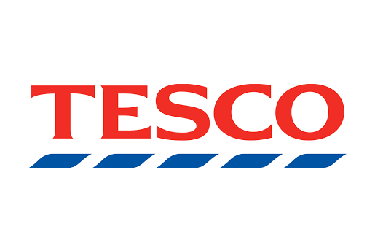United Kingdom-based retailer Tesco is updating its salmon standards in an effort to reduce the amount of wild-caught fish used in salmon aquaculture feeds, according to an 8 August announcement.
Tesco, which is the world’s third largest retailer with over 3,400 stores, is encouraging its salmon suppliers to incorporate more sustainable feed ingredients into their operations, such as natural marine algal oil rich in omega-3 EPA and DHA, via its updated standard. An influential voice for consumers and other retailers, Tesco views its elevated salmon standard as another illustration of its ongoing commitment to affordable and accessible sustainability.
“As part of our Little Helps Plan commitment to ‘lead the industry in addressing the key sustainability challenges in our supply chain,’ we have been exploring how more algal oil can be incorporated into the diet of fish that we sell, starting with salmon, our most popular species of farmed fish,” Tesco said.
Peter Thomson, the United Nations Secretary-General’s Special Envoy for the Ocean, said he views omega-3 oils as the avenue forward for the salmon industry.
"The development of sustainable aquaculture is essential for the future of humanity's food security. Appropriate species, environment-friendly techniques, and sustainable feed supplies, such as algal oil, are surely the way ahead," said Peter Thomson, the United Nations Secretary-General’s Special Envoy for the Ocean.
Nigel Edwards, CSR Director at Seachill, one of Tesco’s fish suppliers, said more seafood companies are seeing the value in sustainable feed supply alternatives such as algal oil.
“The salmon industry has grown rapidly over the last 30 years, with huge steps forward in feed efficiency and farming technology. But to grow further the industry needs novel sustainable sources of omega-3 oils, which are essential to both fish and human health. Algal oils are a natural solution and we are proud to work with the leading innovative salmon farmers and their partner feed producers to encourage investment in them and increase their use,” Edwards said.
Another supporter of sustainable feed ingredients is Delft, The Netherlands-based Veramaris – a joint venture between DSM and Evonik focused on developing algae-based products containing in omega-3 EPA and DHA – which applauded Tesco’s latest endeavor to strengthen its sustainability profile in the seafood sector. Tesco’s updated standard “sends out a clear signal that sustainability is not tomorrow’s issue, but today’s,” the company said in a press release.
“Value chain collaboration and a forward-thinking mindset are key to implementing sustainable breakthrough technologies, such as omega-3 EPA & DHA rich algal oil. Tesco sets an example as a prime agent of change, helping to provide consumers with healthy and sustainable choices. We are proud that algal oil rich in both omega-3 EPA & DHA in salmon feed contributes to a sustainable salmon that also supports both brain and heart health of the entire family,” Veramaris CEO Karim Kurmaly said.
Veramaris’ waste-free algal EPA+DHA omega-3 production facility in Blair, Nebraska, U.S.A. will help the firm meet the seafood industry’s “increased efforts for improved sustainability and healthy nutrition with its natural marine algae oil rich in the essential omega-3 EPA and DHA fatty acids,” the company said.







